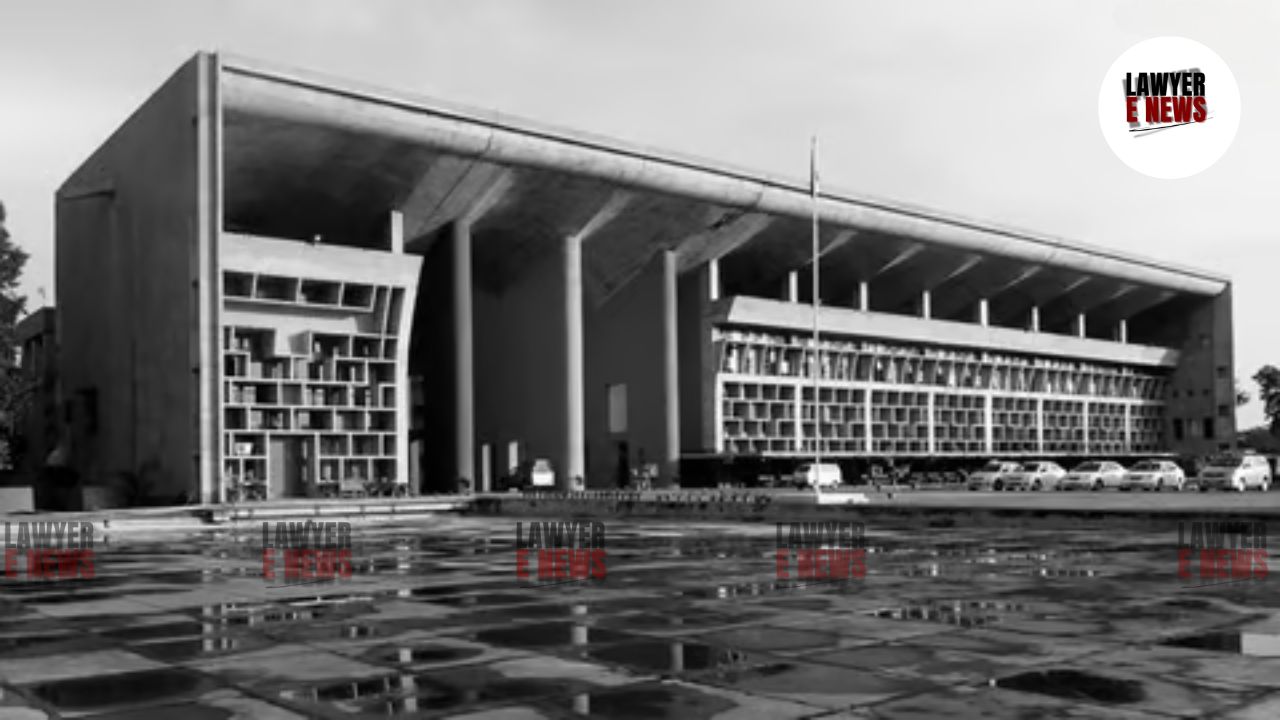-
by Admin
18 December 2025 4:03 PM



"Joint Recording of Section 313 Statements Violates Statutory Mandate": Punjab and Haryana High Court acquitted the accused due to a procedural defect in the trial. The Court held that the joint recording of statements under Section 313 of the Code of Criminal Procedure (Cr.P.C.) vitiated the trial as it violated the statutory purpose of allowing each accused to "personally" explain incriminating evidence against them.
The case, involving a 1997 land dispute in which the accused were convicted for causing grievous injuries, was examined in light of the prolonged litigation and the prejudicial impact of defective procedural compliance.
The case originated from an FIR lodged on January 25, 1997, following an altercation during a land dispute between Gurmej Singh (complainant) and the accused, Lakha Singh and Swaran Singh. It was alleged that Lakha Singh attacked Gurmej Singh with a Takua (axe), inflicting a grievous head injury, while Swaran Singh attacked with a Gandassi (sharp-edged weapon), injuring the complainant's arm.
The trial court acquitted the accused under Section 307 IPC (attempt to murder), citing the absence of intent to kill, but convicted them under Sections 324 and 326 IPC for causing injuries with sharp weapons. The trial court sentenced both accused to three years of rigorous imprisonment.
Both the State and the accused filed appeals: the State challenged the acquittal under Section 307 IPC, while the accused sought to overturn their convictions under Sections 324 and 326 IPC.
The High Court identified the joint recording of Section 313 Cr.P.C. statements of both accused as a fundamental procedural defect. Section 313 mandates that each accused be questioned "personally" to explain the circumstances appearing against them in the evidence. The Court stated:
"The word 'personally' in Section 313 Cr.P.C. suggests that explanation as regards incriminating evidence must be sought individually from each accused. A joint statement leads to ambiguity as it does not clarify the defense or explanation offered by each accused separately." [Para 41]
Citing the Karnataka High Court’s decision in Vaijinath v. State of Karnataka (1993 ILR Karnataka 543), the Court emphasized that recording joint statements is a procedural illegality that vitiates the trial:
"It is quite conceivable that some of the accused may have had a different defense. A joint statement is an illegality that vitiates the trial." [Para 43]
The Court held that the defective examination under Section 313 Cr.P.C. prejudiced the accused by failing to provide them a fair opportunity to explain incriminating evidence individually. The Court cited the Supreme Court’s observations in State of Maharashtra v. Sukhdev Singh (1992) 3 SCC 700:
"The purpose of the examination of the accused under Section 313 is to give the accused an opportunity to explain the incriminating material which has surfaced on record. This opportunity cannot be treated as an idle formality." [Para 27]
The Court acknowledged that defective compliance with Section 313 Cr.P.C. is a curable defect under Section 464 Cr.P.C. However, it noted that the defect could not be cured by remanding the case for fresh examination due to the prolonged pendency of the case (27 years since the incident). The Court remarked:"Although the defective examination under Section 313 Cr.P.C. is curable, having regard to the fact that the occurrence took place 27 years ago, remanding the matter would not serve the interests of justice." [Para 47]
The High Court upheld the trial court's decision to acquit the accused under Section 307 IPC. It observed that the evidence did not establish an intention to kill, as only one grievous injury was inflicted on the complainant's head. The Court stated:
"A solitary blow on the head without any follow-up attack, coupled with the lack of evidence indicating intent to kill, does not satisfy the requirements of Section 307 IPC." [Para 18]
The Court dismissed the State’s appeal challenging the acquittal under Section 307 IPC and allowed the appeal filed by the accused, acquitting them of all charges due to the defective compliance with Section 313 Cr.P.C. The Court discharged the bail bonds of the accused, emphasizing that the prolonged litigation and procedural irregularities justified an acquittal rather than a retrial.
"The accused, having faced the rigors of litigation for 27 years, cannot be subjected to further harassment. The defective compliance with Section 313 Cr.P.C., coupled with the passage of time, warrants their acquittal rather than remanding the matter for retrial." [Para 47]
This landmark judgment highlights the critical importance of procedural compliance in criminal trials, particularly the individual examination of accused persons under Section 313 Cr.P.C. It underscores that procedural fairness is not a mere formality but a cornerstone of justice, and any deviation from statutory requirements that prejudices the accused can vitiate the trial.
The Punjab and Haryana High Court’s decision is a reminder of the judiciary’s role in safeguarding the rights of the accused while ensuring that justice is not compromised by procedural lapses.
Date of Decision: May 20, 2024
